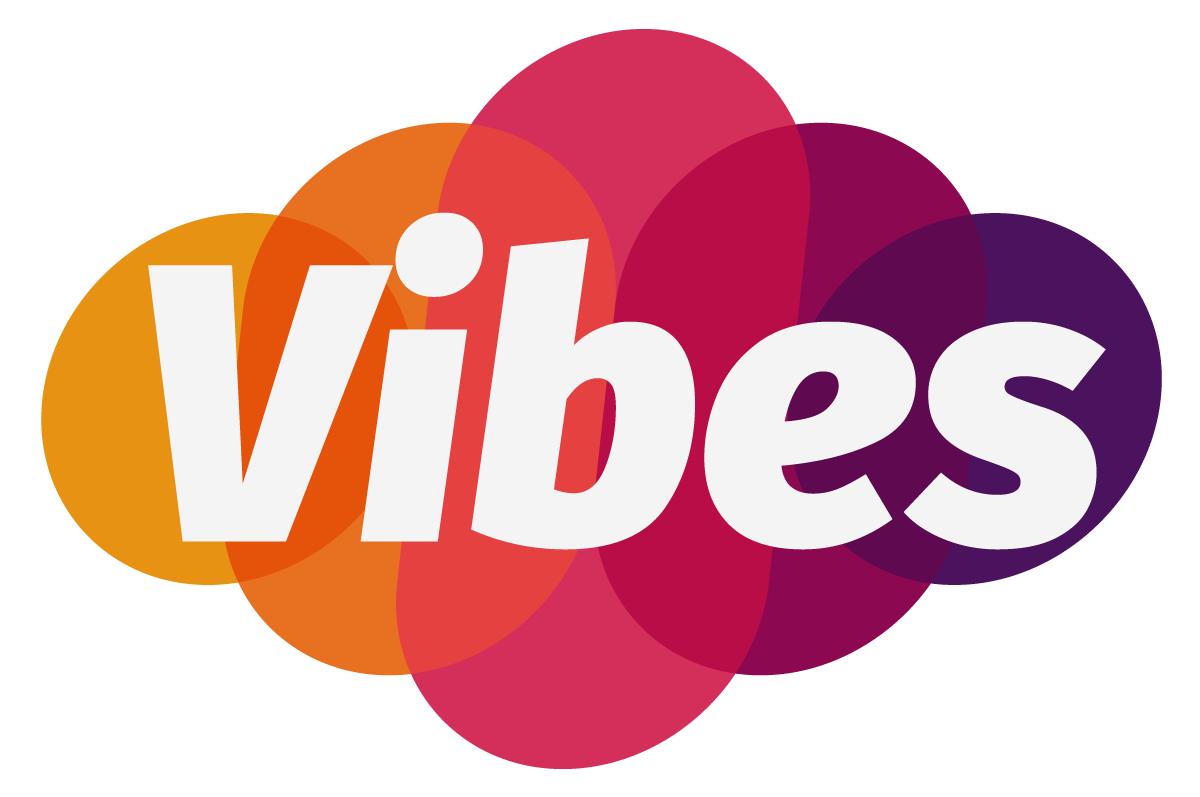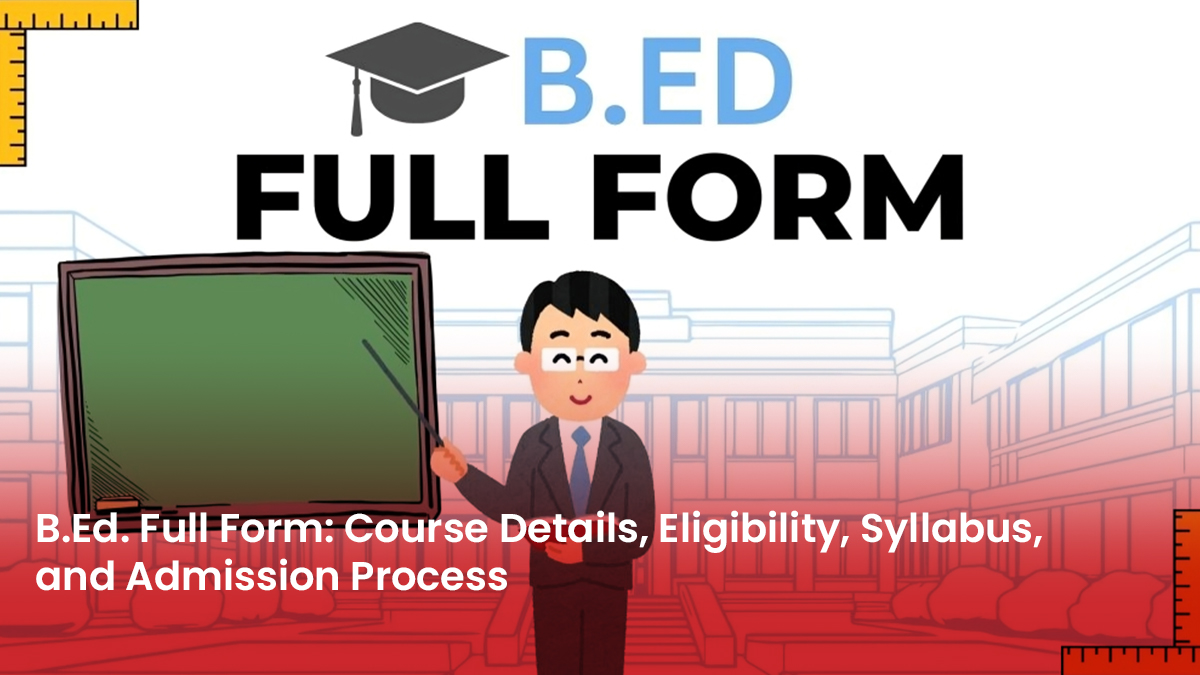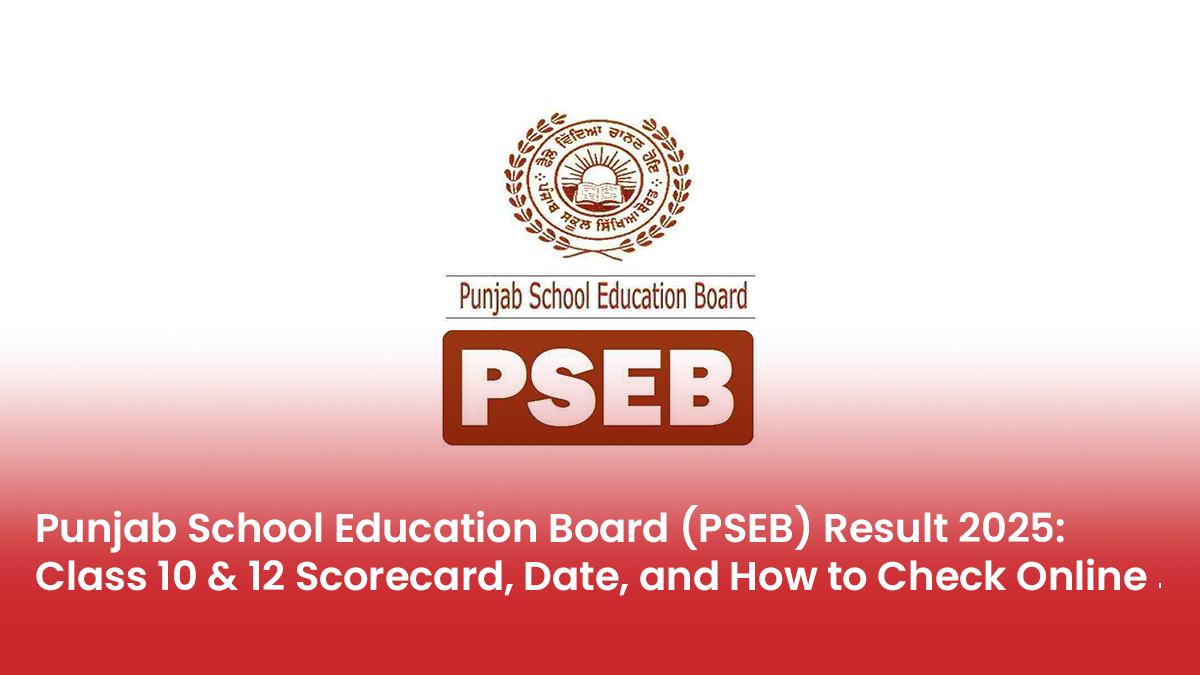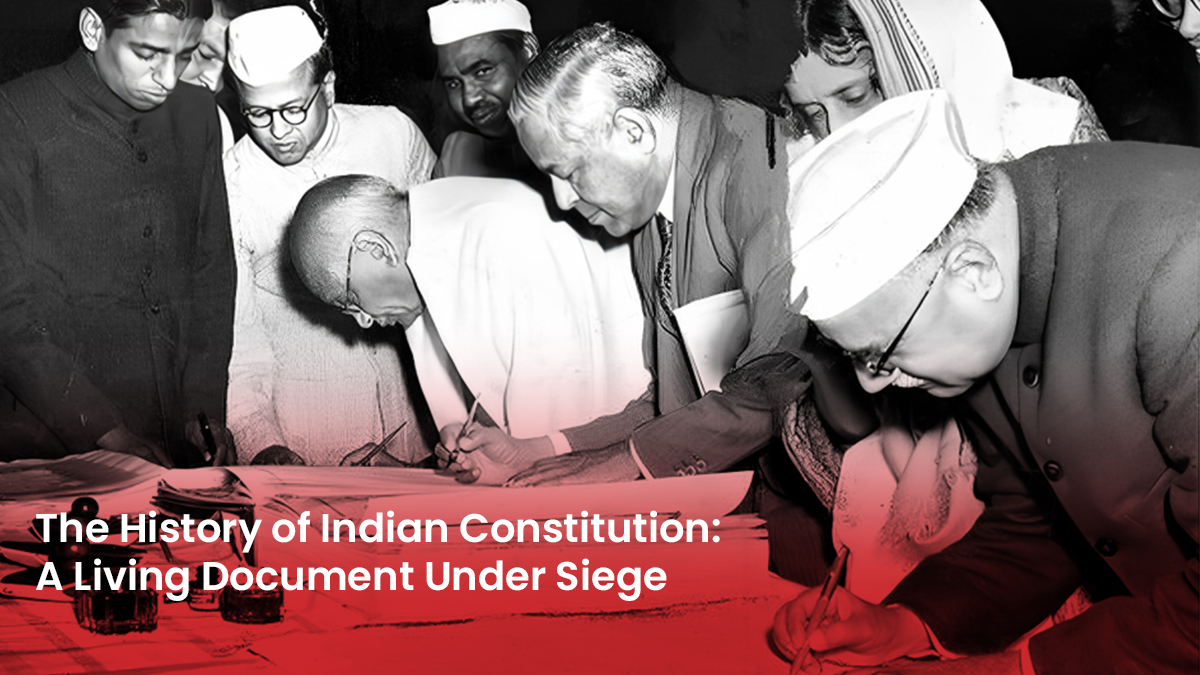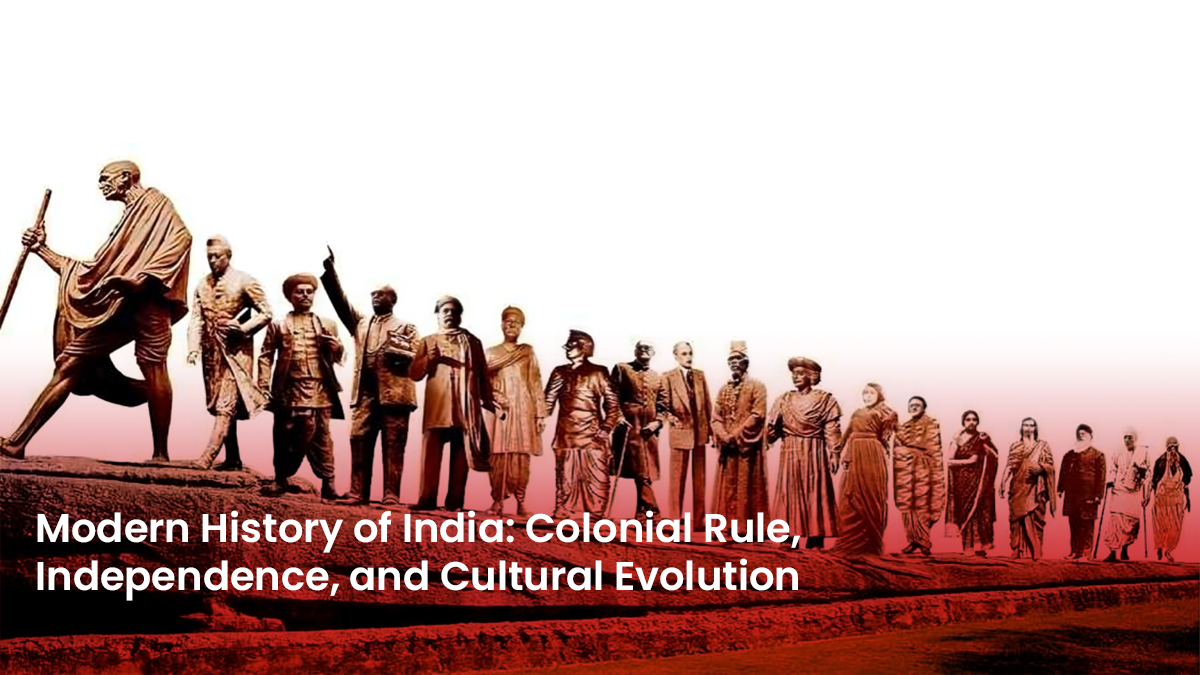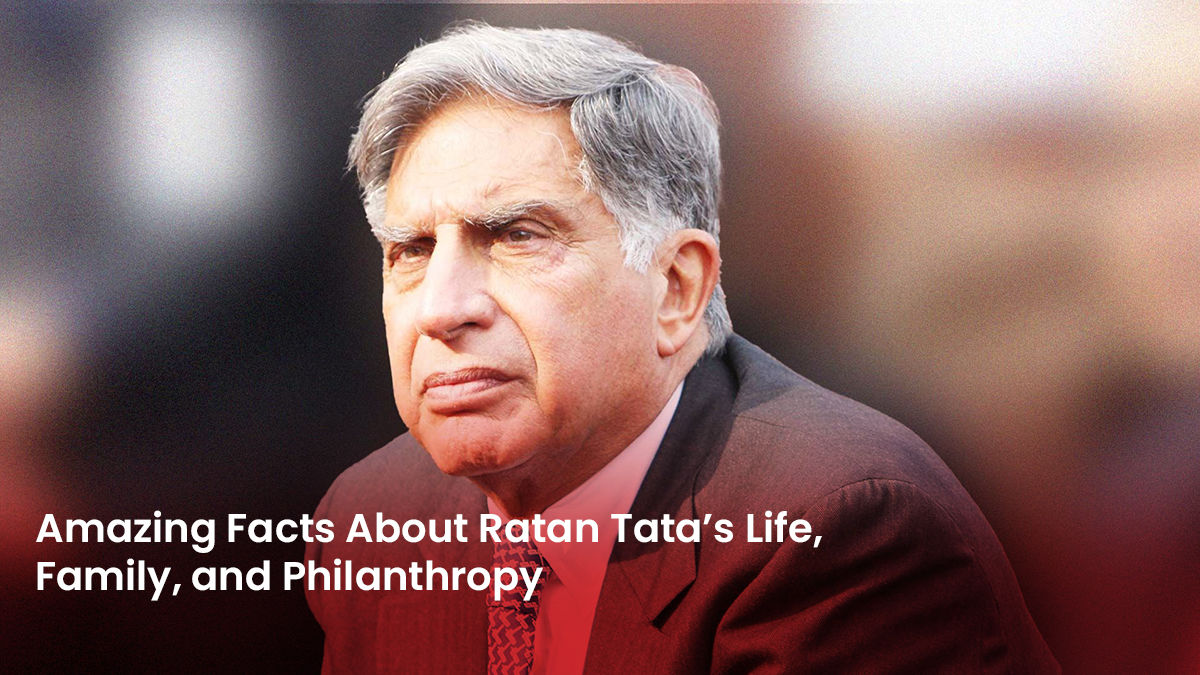If you have a heart for teaching and desire to mold the minds of the young, then taking up a B.Ed. course is the ideal move. But before we get down to business, let’s take care of the fundamentals like what is the full form of B.Ed.? The full form of B.Ed. is Bachelor of Education, a professional degree course that trains students for a teaching career.
In this blog, we will discuss all about B.Ed., right from eligibility criteria and syllabus to admission procedures and career opportunities. Let’s enter the world of teaching with B.Ed.!
What is B.Ed.?
The full form of B.Ed. is Bachelor of Education, which is a professional degree course meant for those students who want to become teachers. It is a requirement for the ones who aim to teach in schools at the primary, secondary, and higher secondary levels.
B.Ed. full form in Hindi and English
- B.Ed. full form in English – Bachelor of Education
- B.Ed. full form in Hindi – शिक्षा स्नातक
- B.Ed. ka full form kya hai? – बैचलर ऑफ़ एजुकेशन
- B.Ed. ka full form kya hota hai? – शिक्षा में स्नातक पाठ्यक्रम
B.Ed. course duration and structure
Most of the future teachers tend to inquire, B.Ed. full form how many years? Historically, two years was the duration of B.Ed. course, but with the introduction of the Integrated B.Ed. course, one can now do B.Ed. in four years simultaneously with the undergraduate programme.
- 2-year B.Ed. course – For graduates of any stream
- 4-year integrated B.Ed. course – For students who wish to study B.Ed. along with their bachelor’s degree
B.Ed. eligibility criteria
To apply for B.Ed. admission, candidates must meet the following eligibility criteria:
- Must have completed a bachelor’s degree (BA, B.Sc, B.Com) or master’s degree from a recognized university
- Minimum 50-55% marks in the qualifying degree (varies by college and category)
- Some universities require candidates to clear a B.Ed. entrance exam for admission
B.Ed. admission process
The B.Ed. application process varies from state to state and college to college. Generally, the steps include:
- B.Ed. registration – Candidates must register for the entrance exam on the respective university website
- B.Ed. entrance exam – Many colleges require clearing an exam such as CUET, DU B.Ed. entrance, or state-level B.Ed. exams
- B.Ed. admit card – Candidates receive their admit cards for the entrance test
- Exam and results – Candidates take the exam, and the B.Ed. result determines admission eligibility
- Counseling and seat allotment – Based on scores, candidates get allotted colleges.
B.Ed. syllabus and course structure
The B.Ed. syllabus includes both theoretical and practical aspects of teaching. The curriculum is designed to train students in pedagogy, classroom management, and subject-specific teaching techniques.
Core subjects in B.Ed.
- Education and society
- Child psychology and development
- Teaching methodologies
- Classroom management
- ICT in education
- Special education
Practical training
- Internship – Hands-on teaching experience in schools
- Lesson planning – Preparing and executing lesson plans
- Workshops and seminars – Training sessions on modern teaching techniques.
B.Ed. course fees
The B.Ed. course fees depend on the type of institution:
- Government colleges – INR 10,000 – 50,000 per year
- Private colleges – INR 50,000 – 2,00,000 per year
- Scholarships and fee waivers are available for reserved category students in many institutions.
Top B.Ed. colleges in India
Some of the best B.Ed. colleges in India include:
- Delhi University (DU)
- Banaras Hindu University (BHU)
- Jamia Millia Islamia (JMI)
- Lady Shri Ram College for Women (LSR)
- Tata Institute of Social Sciences (TISS)
Specializations in B.Ed.
A B.Ed. degree offers various specializations to cater to different educational needs. Some popular specializations include:
- B.Ed. in special education – Focuses on teaching students with disabilities
- B.Ed. in early childhood education – Prepares educators for kindergarten and primary education
- B.Ed. in science education – Trains teachers to specialize in teaching science subjects
- B.Ed. in mathematics education – Focuses on innovative teaching methodologies for mathematics
- B.Ed. in language education – Specialization in teaching languages like English, Hindi, or regional languages
Career opportunities after B.Ed.
A B.Ed. degree opens the door to multiple career opportunities in the education sector. Graduates can explore various roles, including:
Teaching in schools
With a B.Ed. degree, candidates can become teachers in primary, secondary, and higher secondary schools.
Educational counselor
Graduates can work as academic or career counselors, guiding students in their education and career choices.
Private tutoring and coaching
Many B.Ed. graduates opt for private tuition, coaching institutes, or online teaching.
Curriculum developer
B.Ed. holders can work in curriculum planning and instructional design for schools and EdTech companies.
Higher studies and research
After B.Ed., candidates can pursue M.Ed., Ph.D., or other specialized educational programs for advanced teaching and research roles.
Government jobs after B.Ed.
A B.Ed. degree opens up opportunities for government jobs in the education sector. Some key positions include:
- Primary and secondary school teacher – Teaching positions in government schools
- Trained graduate teacher (TGT) – Teaching students in grades 6 to 10
- Post graduate teacher (PGT) – Teaching students in higher secondary levels
- Education officer – Supervising and managing educational institutions
- Government lecturer – Teaching positions in government colleges and universities
Candidates need to qualify for CTET (Central Teacher Eligibility Test), State TET, or DSSSB exams to secure government teaching positions.
Future trends in teaching and education
The field of education is evolving with the rise of digital learning and technological advancements. Some key trends shaping the future of teaching include:
- EdTech integration – The use of AI and digital platforms in teaching
- Hybrid learning models – A mix of online and offline education
- Focus on skill-based learning – Beyond theoretical knowledge, emphasis on practical skills
- Personalized education – AI-driven personalized learning experiences for students
Challenges and opportunities in teaching profession
The profession of teaching is changing at a fast pace, and both challenges and challenging opportunities lie ahead for teachers. A B.Ed. course equips the candidates to deal with the changes efficiently.
1. Reshaping teaching with digital learning
As EdTech takes hold, teachers are now required to adapt to digital media and web-based tools in order to boost student engagement. A B.Ed. course these days includes practice in using technology in the classroom.
2. Accommodating diverse learning needs
Classrooms today are more heterogeneous than before, with learners of varying learning capacity and background. Teachers have to create adaptive instructional strategies to enable all students to gain from learning.
3. Ongoing skill enhancement
Learning is a lifelong process, and teachers need to continuously upgrade themselves. Such opportunities as B.Ed. training, workshops, and higher studies keep teachers abreast of developments in the profession.
4. Professional development and employment security
A B.Ed. degree provides opportunities for different government and private sector teaching positions. With experience, teachers can move to leadership positions such as principal, education officer, or academic consultant.
5. Impact on society
Teaching is a noble profession that has a direct impact on the future of the country. Through quality education and efficient teaching practices, teachers can mold responsible citizens and leaders of the future.
Conclusion
B.Ed. ka full form is Bachelor of Education, an indispensable qualification for would-be teachers. Supported by a carefully designed syllabus, different career prospects, and a changing education industry, studying a B.Ed. course can be a rewarding and meaningful career decision.
Whether you wish to seek admission for a B.Ed., pursue a job for B.Ed., or just learn the full form of the B.Ed. course, this degree continues to be a launching pad for a successful teaching professional career in India.


















